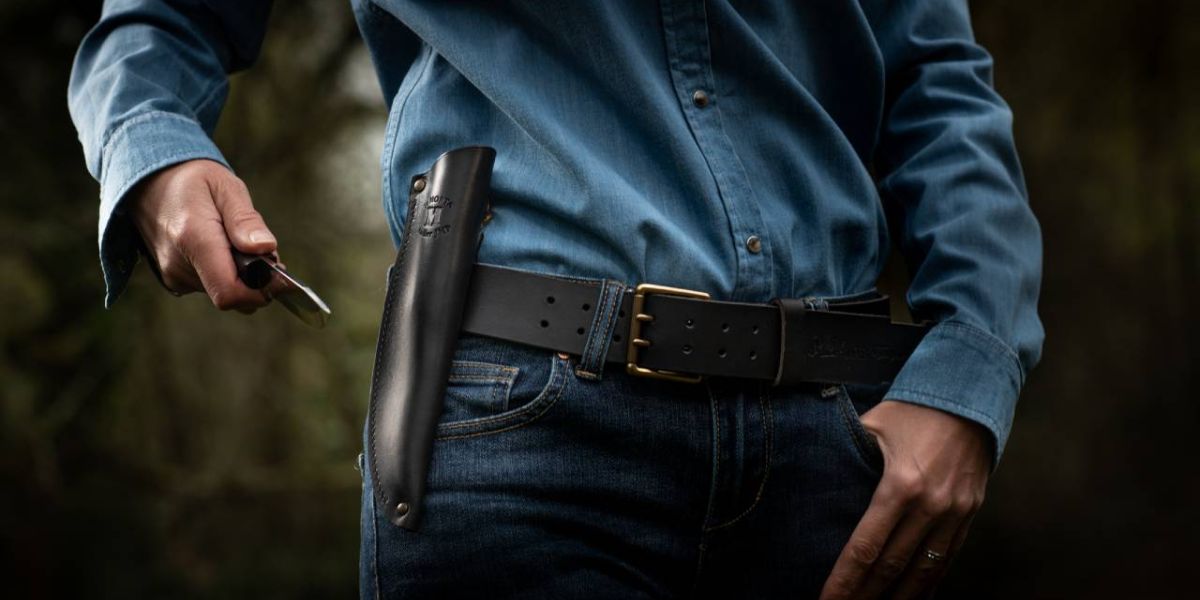Florida has some of the more permissive knife laws in the United States, but that doesn’t mean anything goes. Whether you’re a collector, outdoor enthusiast, or simply someone who carries a pocketknife for utility, understanding the ins and outs of Florida’s knife laws is essential.
This guide breaks down what you can own, what you can carry, and where the legal boundaries lie.
Knife Ownership in Florida: What’s Legal?
In Florida, it is legal to own virtually any type of knife, including:
- Pocketknives
- Bowie knives
- Dirks and daggers
- Balisongs (butterfly knives)
- Throwing knives and stars
- Machetes
- Swords
- Switchblades and automatic knives
As of 2021, switchblades and automatic knives are no longer prohibited. Florida removed the ban under House Bill 1409, meaning residents can now legally own and possess these previously restricted blades.
There is no statewide law banning possession of specific types of knives in your home, and no limit on blade length for ownership. However, owning a knife with intent to use it unlawfully against another person is always a crime.
Carrying Knives in Florida: Concealed vs. Open Carry
Open Carry
Open carry of knives is generally legal in Florida. You can walk around with a sheathed hunting knife, machete, or even a sword, as long as you are not using it to threaten or intimidate others.
However, be aware of local ordinances that may regulate or restrict open carry. Cities and counties can pass their own rules that are stricter than state law.
Concealed Carry
Florida law makes a clear distinction when it comes to concealed carry:
- Concealed carry of a “common pocketknife” is legal without a license.
- Carrying any other knife concealed (such as a dagger, dirk, or Bowie knife) typically requires a concealed weapons license (CWL).
But what qualifies as a “common pocketknife”?
Unfortunately, Florida law doesn’t define it by a specific blade length. Courts have ruled that a common pocketknife is generally one that folds, is carried in a pocket, and has a blade under four inches. Anything more tactical or designed for combat might not be considered “common,” even if it’s a folding knife.
If you’re unsure whether your knife qualifies as a “common pocketknife,” it’s best to either carry it openly or obtain a concealed weapons license to stay on the safe side.
School Zones and Restricted Areas
It is illegal to bring knives onto school property in Florida—including K–12 schools, colleges, and universities—regardless of whether you have a concealed carry permit.
Violations can lead to serious criminal charges, including felony weapons charges, even if the knife is just in your backpack or glove compartment.
Other places where knives may be restricted include:
- Government buildings
- Courthouses
- Airports (TSA guidelines apply)
- Certain events or theme parks with posted rules
Always check local regulations or posted signs before carrying a knife into public or restricted areas.
Self-Defense and Stand Your Ground
Florida is known for its “Stand Your Ground” law, which allows individuals to use force, including deadly force, to protect themselves without a duty to retreat in certain situations.
If you carry a knife for self-defense, be aware that its use must be justifiable under the law. You must reasonably believe that using the knife was necessary to prevent imminent death or great bodily harm.
However, just claiming self-defense doesn’t automatically protect you from charges—every case is reviewed on its own merits, and using a knife can escalate legal consequences if not clearly justified.
Juvenile Knife Laws
Minors under the age of 18 are subject to stricter rules. While owning a basic pocketknife may be permitted, carrying more dangerous or large-blade knives could result in legal trouble.
Parents and guardians should educate teens about the difference between utility knives and weapons under Florida law to avoid accidental violations.
Conclusion
Florida offers broad protections for knife ownership and carry, especially for adults using them responsibly. However, distinctions between open and concealed carry, local ordinances, and specific location restrictions are key to staying within legal boundaries.
When in doubt, it’s always a good idea to carry your knife openly, keep it under four inches if it’s concealed, and avoid carrying in restricted areas like schools or courthouses. For those wanting broader rights to carry concealed knives, obtaining a concealed weapons license is a smart step.
Understanding your knife rights in Florida isn’t just about legality—it’s about responsible ownership and safety. Stay informed, stay sharp, and carry with care.




